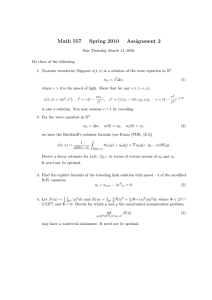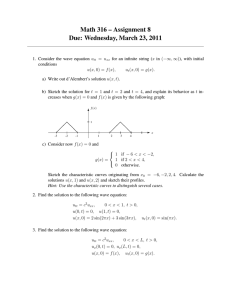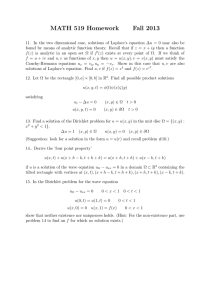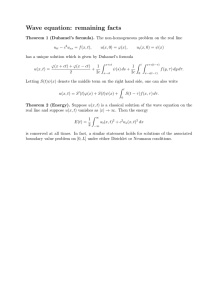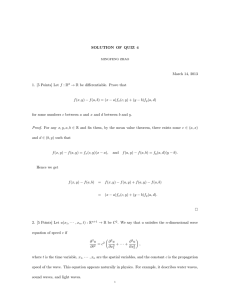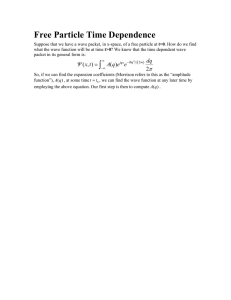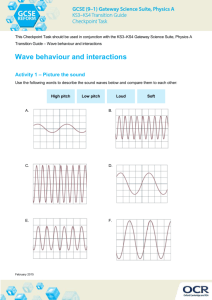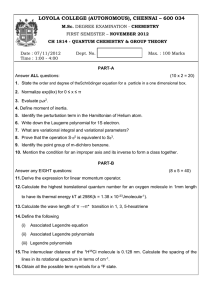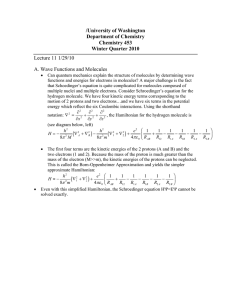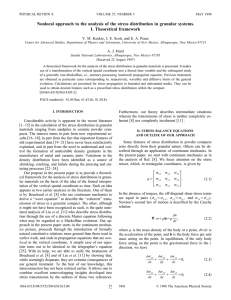PRELIMINARY EXAMINATION: APPLIED MATHEMATICS II
advertisement
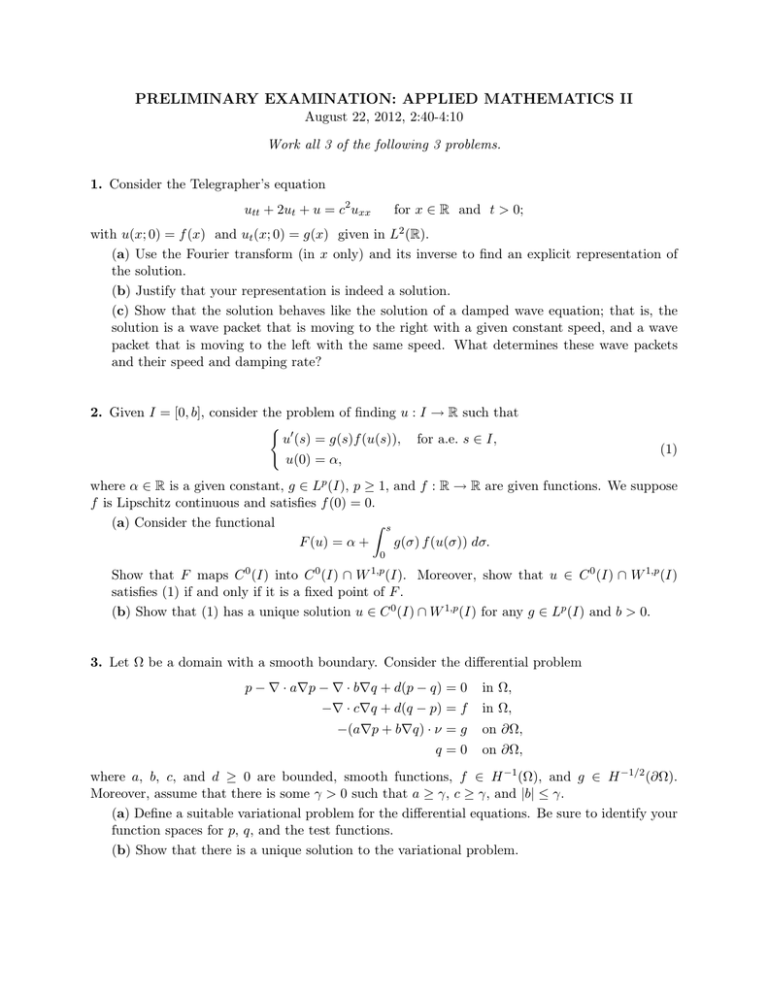
PRELIMINARY EXAMINATION: APPLIED MATHEMATICS II August 22, 2012, 2:40-4:10 Work all 3 of the following 3 problems. 1. Consider the Telegrapher’s equation utt + 2ut + u = c2 uxx for x ∈ R and t > 0; with u(x; 0) = f (x) and ut (x; 0) = g(x) given in L2 (R). (a) Use the Fourier transform (in x only) and its inverse to find an explicit representation of the solution. (b) Justify that your representation is indeed a solution. (c) Show that the solution behaves like the solution of a damped wave equation; that is, the solution is a wave packet that is moving to the right with a given constant speed, and a wave packet that is moving to the left with the same speed. What determines these wave packets and their speed and damping rate? 2. Given I = [0, b], consider the problem of finding u : I → R such that ( u0 (s) = g(s)f (u(s)), for a.e. s ∈ I, u(0) = α, (1) where α ∈ R is a given constant, g ∈ Lp (I), p ≥ 1, and f : R → R are given functions. We suppose f is Lipschitz continuous and satisfies f (0) = 0. (a) Consider the functional Z s F (u) = α + g(σ) f (u(σ)) dσ. 0 C 0 (I) C 0 (I) W 1,p (I). Show that F maps into ∩ Moreover, show that u ∈ C 0 (I) ∩ W 1,p (I) satisfies (1) if and only if it is a fixed point of F . (b) Show that (1) has a unique solution u ∈ C 0 (I) ∩ W 1,p (I) for any g ∈ Lp (I) and b > 0. 3. Let Ω be a domain with a smooth boundary. Consider the differential problem p − ∇ · a∇p − ∇ · b∇q + d(p − q) = 0 in Ω, −∇ · c∇q + d(q − p) = f in Ω, −(a∇p + b∇q) · ν = g on ∂Ω, q=0 on ∂Ω, where a, b, c, and d ≥ 0 are bounded, smooth functions, f ∈ H −1 (Ω), and g ∈ H −1/2 (∂Ω). Moreover, assume that there is some γ > 0 such that a ≥ γ, c ≥ γ, and |b| ≤ γ. (a) Define a suitable variational problem for the differential equations. Be sure to identify your function spaces for p, q, and the test functions. (b) Show that there is a unique solution to the variational problem.
